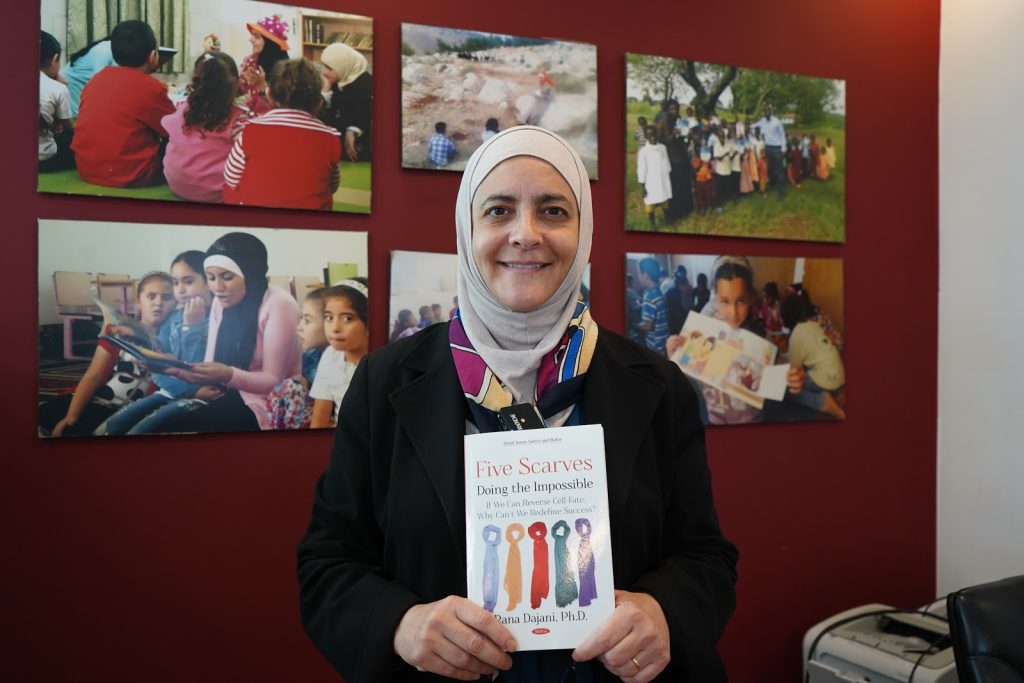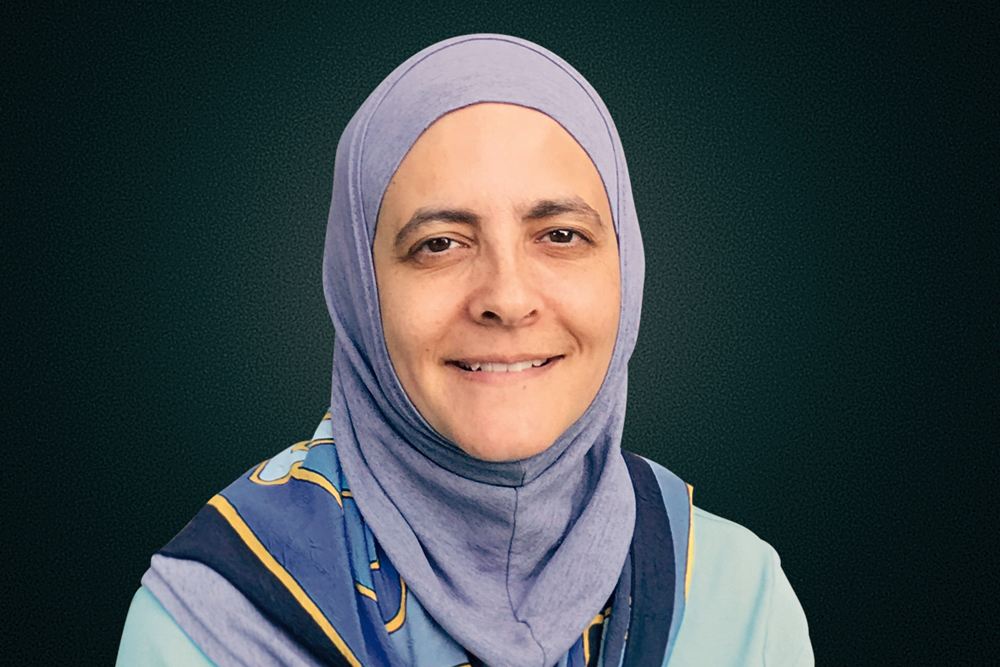Rana Dajani was born in Jordan to a Palestinian father from Jerusalem and a Syrian mother from Aleppo.
Jahanbanou reports, Dajani, who is considered one of the most influential researchers in the Islamic world was also ranked 12th among the 100 most influential Arab women in 2015.
Reflecting on her academic journey, this Jordanian molecular biologist; observes that the lack of representation of women in science is a “global phenomenon” in all Western and Eastern countries.
Dajani received her doctorate in 2004, and her degree in molecular biology from the University of Iowa, in the United States. She returned to her homeland in 2006 and worked as an assistant professor in Hashem city.
During her studies, she got married. After she gave birth to 3 beautiful children her husband a colonel in the Jordanian Air Force; asked her to apply for a Fulbright scholarship in 1999 to study for a doctorate at the University of lowa.
She immediately applied for a scholarship and entered the exams. On the day of the interview, she gave birth to her youngest daughter and was taking care of the children while she studied.
She says that her father encouraged her and her sisters to read more and gain more knowledge. Every evening they discussed with him what they had read that day.
We love to read
Dajani created an initiative called “We Love Reading” in which she read aloud to neighborhood children at her neighborhood mosque in Amman. This movement has spread to more than 60 countries around the world; and has trained more than 7,000 volunteers to become “reading ambassadors”.

The goal of this project is to teach children to read for pleasure and to make books and reading accessible to children in every community, including refugee camps. Dajani mentioned that “We Love Reading” had a particularly positive effect on refugees.
My Scientific Career
According to JahanBanou, Dajani has been an active leader of several scientific associations. She has served for three years as the President of the Jordanian National Chapter of Women in Science for the Developing World (OWSD).
From 2019, adding to that, she is the president of the Association for the Advancement of Science and Technology in the Arab World (SASTA); a US-based non-profit network founded by Arab scientists abroad. Plus, she was the director of Hashemi University Study Center in 2010 and 2011.
In 2020 Dajani honored by UN Refugee Agency; was the winner of the Nansen Refugee Award for the Middle East and North Africa region. The award recognizes her philanthropic efforts through We Love Reading campaign.



2 comments
Reading your article helped me a lot and I agree with you. But I still have some doubts, can you clarify for me? I’ll keep an eye out for your answers.
Reading your article helped me a lot and I agree with you. But I still have some doubts, can you clarify for me? I’ll keep an eye out for your answers.